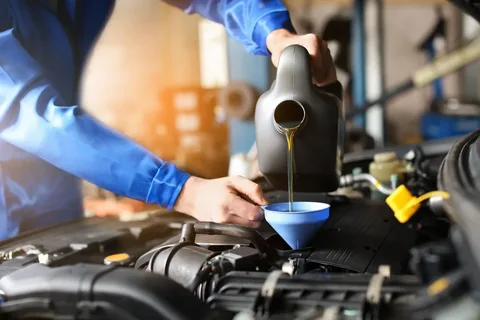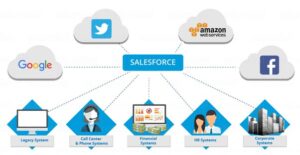In today’s rapidly evolving car dealership industry, continuous employee training and development have become paramount. With the ever-changing technology, customer expectations, and market dynamics, it is crucial for car dealerships to invest in empowering their staff with the necessary skills and knowledge to stay competitive. A well-trained team not only ensures superior customer service but also drives sales and client satisfaction.
Importance of Employee Training and Development in the Car Dealership Industry
Employee training and development play a vital role in the success of cars for cash dealerships. By investing in their workforce, dealerships can achieve a range of benefits that contribute to their overall growth and profitability.
Firstly, comprehensive training programs enable employees to gain the knowledge and skills needed to excel in their roles. From understanding the latest automotive technologies and industry trends to honing their communication and negotiation skills, well-trained employees can provide customers with accurate information and exceptional service, which in turn enhances the dealership’s reputation.
Secondly, employee training and development foster employee engagement and job satisfaction. When employees feel valued and supported through ongoing training opportunities, they are more likely to be motivated and committed to their work. This leads to lower turnover rates and higher employee retention, saving the dealership both time and money in recruitment and training.
Thirdly, investing in employee development helps to build a culture of continuous improvement within the dealership. By encouraging employees to develop new skills and expand their knowledge base, dealerships can stay ahead of the competition and adapt to changing customer needs and market trends. This adaptability is crucial in an industry where technology and customer preferences are constantly evolving.
Current Challenges Faced by Car Dealerships in Training and Development
Despite the importance of employee training and development, car dealerships often face challenges when implementing effective programs. One major challenge is the lack of time and resources dedicated to training. With daily operational demands and the pressure to meet sales targets, finding time for training can be a struggle. Additionally, limited budgets may restrict the ability to invest in external training programs or hire dedicated trainers.
Another challenge is the rapidly evolving nature of the automotive industry. New technologies, models, and customer preferences emerge at a rapid pace, requiring dealerships to continuously update their training materials and programs. Failure to keep up with these changes can result in outdated knowledge and skills, negatively impacting customer satisfaction and sales performance.
Furthermore, the turnover rate in the car dealership industry can pose a challenge to training and development efforts. With employees frequently changing roles or leaving the dealership altogether, it becomes difficult to maintain a consistent training program and ensure knowledge transfer between employees.
Implementing a Structured Onboarding Process for New Hires
An effective onboarding process is crucial in setting the foundation for employee success in the car dealership industry. It is during the onboarding phase that new hires are introduced to the dealership’s culture, values, and expectations. A structured onboarding process should include the following elements:
Welcome and Orientation: New employees should receive a warm welcome and a comprehensive orientation to familiarize them with the dealership’s facilities, policies, and procedures. This includes introducing them to key personnel and providing them with an overview of their roles and responsibilities.
Product Knowledge Training: New hires should undergo thorough training on the dealership’s product offerings. This includes learning about different vehicle models, features, and specifications. Product knowledge training should also cover competitive analysis to equip employees with the information needed to make effective sales pitches.
Sales Techniques and Customer Service Training: To excel in the car dealership industry, employees need strong sales and customer service skills. New hires should receive training on effective sales techniques, including prospecting, qualifying leads, presenting offers, and closing deals. Customer service training should focus on building rapport, handling objections, and resolving customer complaints.
Shadowing and Mentoring: Pairing new hires with experienced employees allows for hands-on learning and knowledge transfer. New employees can shadow experienced colleagues during customer interactions to observe best practices and gain practical insights. Mentoring programs can provide ongoing guidance and support, ensuring new hires feel supported and motivated.
Continuous Learning and Development Opportunities for Existing Employees
Training and development should not be limited to new hires. It is equally important to provide continuous learning opportunities for existing employees to keep their skills sharp and promote career growth. Some effective strategies for continuous learning and development include:
Regular Training Workshops: Conducting regular training workshops on various topics such as negotiation skills, customer relationship management, and digital marketing can help employees stay updated on industry trends and enhance their skill sets. These workshops can be conducted in-house or by bringing in external trainers.
Cross-Training: Cross-training employees in different departments or roles within the dealership can broaden their knowledge base and improve their versatility. This allows employees to step in and support other team members when needed, increasing operational efficiency.
Encouraging Certifications: Encouraging employees to pursue industry certifications showcases their expertise and commitment to professional development. Car dealerships can support employees in obtaining certifications such as automotive sales training certifications or customer service excellence awards.
Employee-Led Training Sessions: Creating opportunities for employees to share their expertise and knowledge with their colleagues can foster a culture of collaboration and continuous learning. Employee-led training sessions can be organized where employees can present on topics they excel in, allowing for peer-to-peer learning and skill-sharing.
Leveraging Technology for Employee Training and Development
In today’s digital age, technology plays a crucial role in employee training and development. Car dealerships can leverage various technological tools and platforms to enhance the effectiveness and accessibility of training programs.
Online Learning Platforms: Online learning platforms provide a flexible and self-paced learning environment for employees. Dealerships can invest in learning management systems (LMS) to deliver training modules, track progress, and provide assessments. These platforms can be accessed from anywhere, allowing employees to learn at their own convenience.
Virtual Reality (VR) and Augmented Reality (AR): VR and AR technologies can simulate real-world scenarios for training purposes. For example, employees can practice handling customer objections or conducting product demonstrations in a virtual environment, improving their confidence and skills.
Mobile Learning Applications: Mobile learning applications enable employees to access training materials on their smartphones or tablets. This allows for on-the-go learning and provides quick access to information when needed. Dealerships can develop their own customized apps or utilize existing platforms to deliver training content.
Gamification: Incorporating gamification elements into training programs can make learning more engaging and interactive. Dealerships can develop quizzes, challenges, and leaderboards to encourage healthy competition and motivate employees to actively participate in training activities.
Measuring the Effectiveness of Training and Development Programs
Measuring the effectiveness of training and development programs is essential to ensure that investments are yielding the desired outcomes. By evaluating the impact of training, car dealerships can make data-driven decisions to improve future programs. Here are some ways to measure effectiveness:
Performance Metrics: Monitor key performance indicators such as sales revenue, customer satisfaction ratings, and employee productivity before and after training. Comparing these metrics can provide insights into the direct impact of training on overall performance.
Employee Feedback: Conduct anonymous surveys or interviews to gather feedback from employees regarding the relevance, quality, and usefulness of training programs. This feedback can help identify areas for improvement and ensure that training programs align with employee needs and expectations.
Training Completion Rates: Track the percentage of employees who successfully complete training programs. Low completion rates may indicate a lack of engagement or issues with the program’s design or delivery.
Knowledge Assessments: Conduct pre and post-training assessments to measure the knowledge gained by employees. This can help identify areas where additional training or support may be required.
Read more: Car Wreckers Adelaide: Used & Wrecked Auto Spare Parts
Best Practices for Employee Training and Development in the Car Dealership Industry
To maximize the impact of training and development programs in the car dealership industry, it is important to follow best practices:
Align Training with Business Goals: Ensure that training programs are aligned with the dealership’s overall business goals and objectives. This ensures that training efforts are focused on areas that directly contribute to the dealership’s success.
Engage Management and Leadership: Obtaining buy-in from management and leadership is crucial for the success of training programs. Leaders should actively support and participate in training initiatives, emphasizing the importance of employee development.
Encourage Continuous Feedback: Establish a feedback loop where employees can provide suggestions, share their training needs, and offer insights on the effectiveness of existing programs. This fosters a culture of continuous improvement and ensures that training programs remain relevant and impactful.
Promote a Learning Culture: Create a supportive environment that values continuous learning and encourages employees to take ownership of their professional development. Recognize and reward employees who actively engage in training activities and demonstrate a commitment to self-improvement.
Conclusion: The Impact of Employee Training and Development on the Success of Car Dealerships
In conclusion, employee training and development are essential for the success and growth of car dealerships in today’s rapidly changing industry. By investing in comprehensive training programs, car dealerships can equip their workforce with the necessary skills and knowledge to provide exceptional customer service, drive sales, and stay ahead of the competition.
To overcome challenges and ensure the effectiveness of training programs, car dealerships should implement a structured onboarding process for new hires, provide continuous learning opportunities for existing employees, leverage technology for training delivery, and measure the impact of training efforts.
By following best practices and fostering a culture of continuous learning, car dealerships can build a skilled and adaptable workforce that contributes to their long-term success in the ever-evolving car dealership industry. So, embrace the power of employee training and development and unlock the potential for growth in your car dealership today.



















